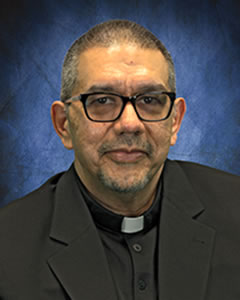
From the Director
In today’s world, tensions between race, ethnicity, and culture have increased. There are polarizing movements that seem to fuel more hate than understanding. As missionaries serving in a country not of our origin, we tend to be placed in the middle of such tensions. What stance do we take? How do we react? What can we do? Much depends on the situation and nature of conflict.
For several years, I worked in southern Chile which had a large native population of Mapuches. There is a historical mistrust between the Mapuches and Chileans. The Mapuches’ territory never fully came under the Chilean government control until the late 1800s. In the history of South America, it was one of the last areas to be colonized and Christianized. For some, the wounds of colonization were somewhat fresh. One Mapuche elder told me how, as a child, they were told by the Church to renounce their traditional ways and how they had to burn native ceremonial artifacts in front of state and church officials. Amongst the Mapuches, there was a plurality of ideologies. One thought was that one can only be Mapuche and not Christian. Another was, one can be Mapuche and Christian but you don’t mix the faiths. Thus, if one participated in a Mapuche ceremony, they did so as 100% Mapuche. When one participated in a Christian ceremony (i.e. Eucharist) one did so as 100% Christian. A third ideology was that one can be Mapuche and Christian, and can mix the faiths. For example, in the celebration of the Eucharist, Mapuche elements can be added. The last ideology was that one can only be Christian and never Mapuche. Some groups can radicalize these ideologies, some can be more dialogical. As one can see, it had a myriad of nuances that need different approaches. One simple approach was not enough.
Whatever situation a missionary encounters, the center of any approach has to be the human dignity of the individual and people. During my mission work in southern Chile, I became friends with Chileans and Mapuches of all different ideologies. I heard stories of injustice and misunderstandings. Yet, the basic need was to listen with compassion and provide a peaceful stance. Yet, there will be moments when a direct action is required with a clear stance for one and against another. Thus, the centrality of human dignity.
Whatever situation a missionary encounters, the center of any approach has to be the human dignity of the individual and people.
Once, I drove to a small town to buy supplies for my house. I came to a stop sign and watched as a Mapuche couple crossed the street in front of my truck. As they approached the other side, a police van pulled up and four officers got out of the vehicle. They immediately grabbed the man and began beating him in the street. The woman screamed. Others stood around and watched. I did not know the man and maybe he was a criminal. However, the fact that the officers did not handcuff him and take him to vehicle was suspicious to me. Having the faith that the officers would recognize me, I got out of my truck and yelled, “Hey! What’s going on over there!” The officers stopped, turned around and looked at me with a frenzied look. Suddenly, the look disappeared, and they recognized me. They quickly left the man, got in the vehicle and left. Clearly, they were acting out of bounds and wanted to assert dominance for some reason. I went to the man and asked if he was alright. He was muttering obscenities at the officers but appeared to be fine. The couple thanked me and left. Although it was not a great action, this small act is one example of how a missionary can encounter issues regarding race, ethnicity, and culture on a daily basis. The primacy of human dignity over any ideology is a central Christian principal that must be always maintained when dealing with race, ethnicity, and culture.